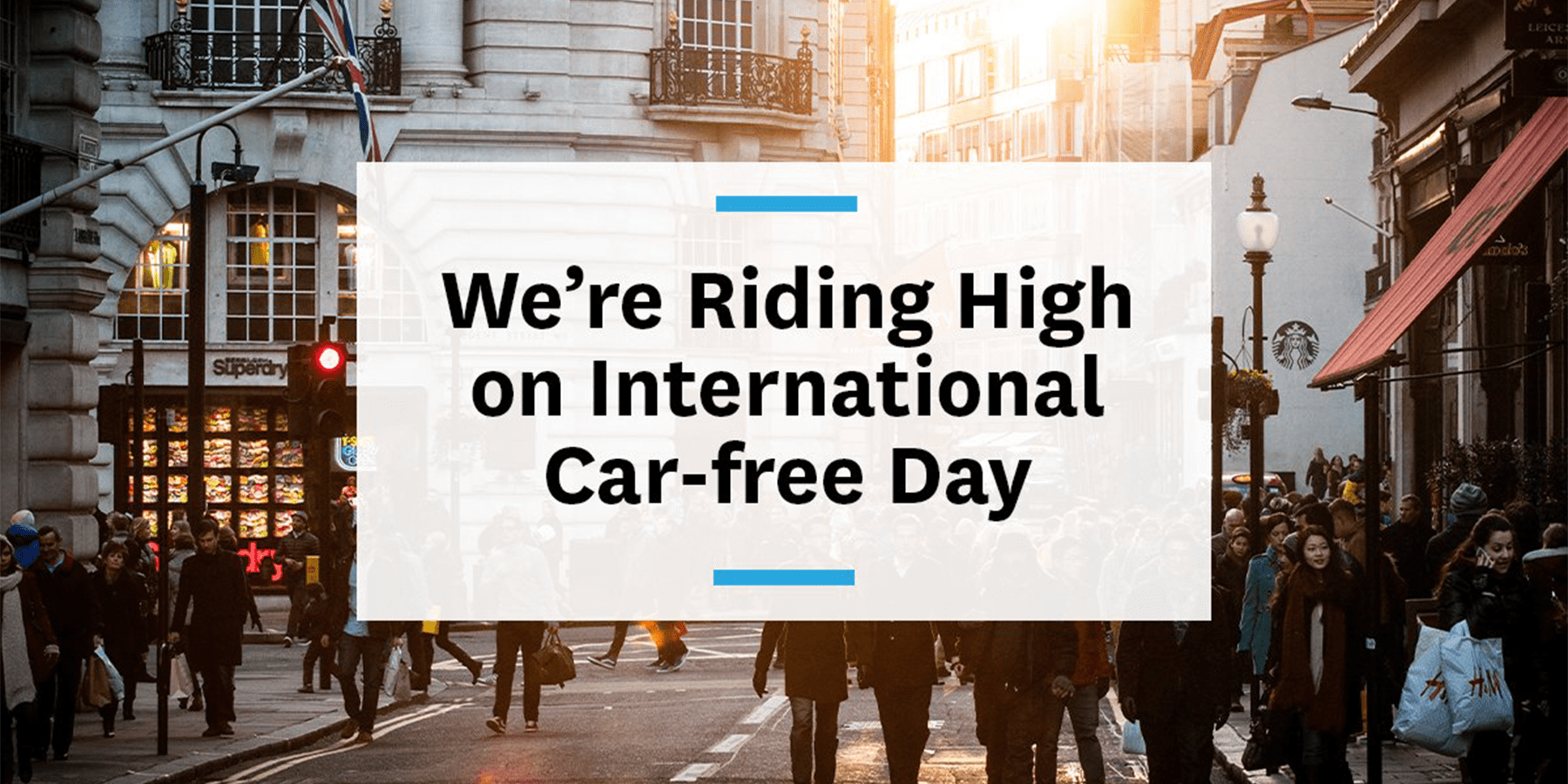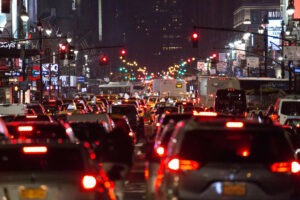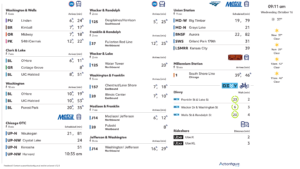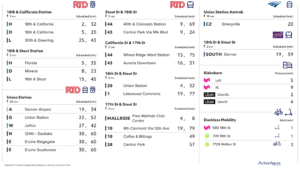These days, it seems like every day is a national or international holiday. Between National Chocolate Pudding Day and National Chocolate Mousse Day, it’s hard to keep up. But there’s one day that everyone who has ever had a miserable commute should circle and start a countdown clock for: September 22. That date is International Car-Free Day, aka our favorite holiday!

Every 22nd of September, cities around the world shut down portions of streets — sometimes multiple city blocks — to cars. This isn’t to shame people for driving to work, but rather to promote the use of alternate forms of commuting and local travel, like bikes and scooters.
Let’s clear the air
There are many benefits that come with the absence of cars on the streets: less traffic, more room on the road, safer spaces for bikers – the list goes on. There are also long-term benefits that can significantly change the way people commute.
Biking in a city can be intimidating if you’ve never done it before. Between cars honking and seasoned bikers flying past you, knowing the rules of the road is a must. What’s a better situation to learn the route to work than with no cars to worry about? Not only does this force people to switch their cars for other forms of transportation, it gives them the knowledge and confidence to continue positive commuting habits.
The other major benefit is cleaner air. It’s no secret that cars emit a lot of carbon dioxide — enough to make driving one of the leading contributors to air pollution every year. In fact, cars produced nearly one-third of the total air pollution in the US. That’s what car-free days aim to change. Although it’s only a day or two, the impact of reducing the number of cars on the road can significantly decrease vehicle emissions overall.
Paris first joined car-free day in 2015 and reduced their car emissions by 40 percent. Image if every city reduced car usage 365 days a year. That’s a lot of air pollution that’s simply gone. Obviously it takes more than just a few days a year to convince people to ditch their cars for good, but it’s a start.
Count me in(volved)
Getting commitments from city governments, businesses, and individuals is an absolute necessity and it all starts at the top. Gaining local government buy-in is tough but essential, especially during peak commuting times. Although the goal is to rid cars from the road, completely disrupting everyone’s commute is not possible. While some cities do more than others – from Paris closing almost every road in the city to Washington, DC, closing a few select avenues – any level of involvement is a step in the right direction.
Employers should be the biggest advocates for car-free days! When employees have bad commutes, a decrease in productivity inevitably follows. Getting employees to choose new methods of commuting can be tough, so taking advantage of a global effort can be the catalyst for a positive change in commuting.
When employers are on board, that makes it so much easier for employees to get started. Taking the pledge to change commuting habits for one day can lead to a change in commuting habits forever. In addition to a stress-free commute, Washington, DC, residents can receive prizes and special promotions, just for filling out the pledge form.
Get out of town
Car-free days aren’t just happening in just a couple small cities here and there, but in thousands of cities around the world. It’s estimated that more than 2000 cities in 46 countries will participate in 2019. This level of commitment is nothing to take lightly.
London is planning to shut down more than 12 miles of roads downtown. European cities aren’t satisfied with just a day or two days of the car-free life. That’s why they created Mobility Week. To further the fight against traffic, nearly 3,000 European towns and cities have registered for Mobility Week 2019. Cities like Copenhagen and Amsterdam are known for their bike-first culture, and more cities are hopping on the car-free trend.
While a lot of European cities experience life without cars most of the year, US cities are joining the movement. New York City is known for its traffic; in order to highlight what it could be like without cars, New York is shutting down some of its busiest streets. From Midtown up to the Bronx and down to Brooklyn and Long Island, the country’s most crowded city is going to make a statement.
To make these days a success, it’s up to the individuals to participate – more than just taking the pledge! Cities aren’t shutting down their busiest streets for fun, they are doing it for the citizens. Skip the seatbelt and choose your bike helmet. Encourage your coworkers and neighbors to take part. Help colleagues figure out which bike lanes and trails will get them to the office in a safe and timely manner. When one person goes the extra mile, more people will follow.
Drive it home
It’s going to take a lot more than just a few car-free days to make a long-term impact, but spreading the word this way can start to make a change. Mitigating traffic and allowing for more sustainable forms of commuting is not only beneficial for employees’ mental health, but their physical health as well. It’s one thing for employers to encourage employees to participate, but it’s another for employers to get involved. Sponsoring a checkpoint for bicyclists or contributing prizes for individuals to win for participating are small actions that can go the extra mile.




